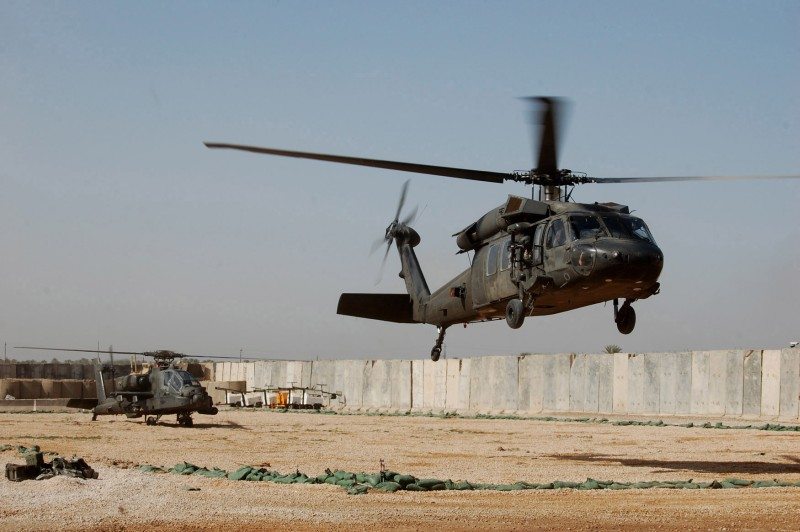In use in other Defense Department aircraft for years, fly-by-wire now replaces the conventional manual flight controls in some Black Hawk helicopters with an electronic interface.
The flight-control movements are converted to electronic signals and sent to flight control computers that use them to determine how to move the aircraft.
This technology can automatically perform functions without input from the pilot, such as systems that automatically stabilize the aircraft.
“The fly-by-wire variant of the UH-60M Black Hawk offers increased handling capability, lower maintenance burden, decreased pilot work load, and full-authority digital engine control,” Maj. Jeffrey Stvan, assistant program manager UH-60 Modernization, said.
This technology greatly decreases the workload of the pilots, allowing them to focus on their surroundings and reduce fatigue, by permitting them to better control the loads.
“Fly-by-wire offers increased handling capabilities and decreased pilot workload. This allows the pilot to focus on his current mission,” Stvan said. “One aim of the fly-by-wire system is to allow the pilot to keep more of his concentration outside the cockpit and on his surrounding environment.”
Maj. Carl Ott, an Army experimental test pilot for the Aviation and Missile Research Development and Engineering Center’s Aeroflightdyanmics Directorate at Moffett Field, Calif., has done testing for the Utility Project Office and Sikorsky, involving fly-by-wire technology. He said fly-by-wire technology is geared toward making the aircraft highly stable and more predictable.
This technology will also help troops on the ground, when a pilot can focus more on the surroundings and efficiently making deliveries and place payloads that will be a great advantage, officials said.
“The fly-by-wire is an enabling technology that will allow for more advanced, adaptive, flight controls and sensors to be integrated into a helicopter making them easier and safer to fly,” Ott said.











